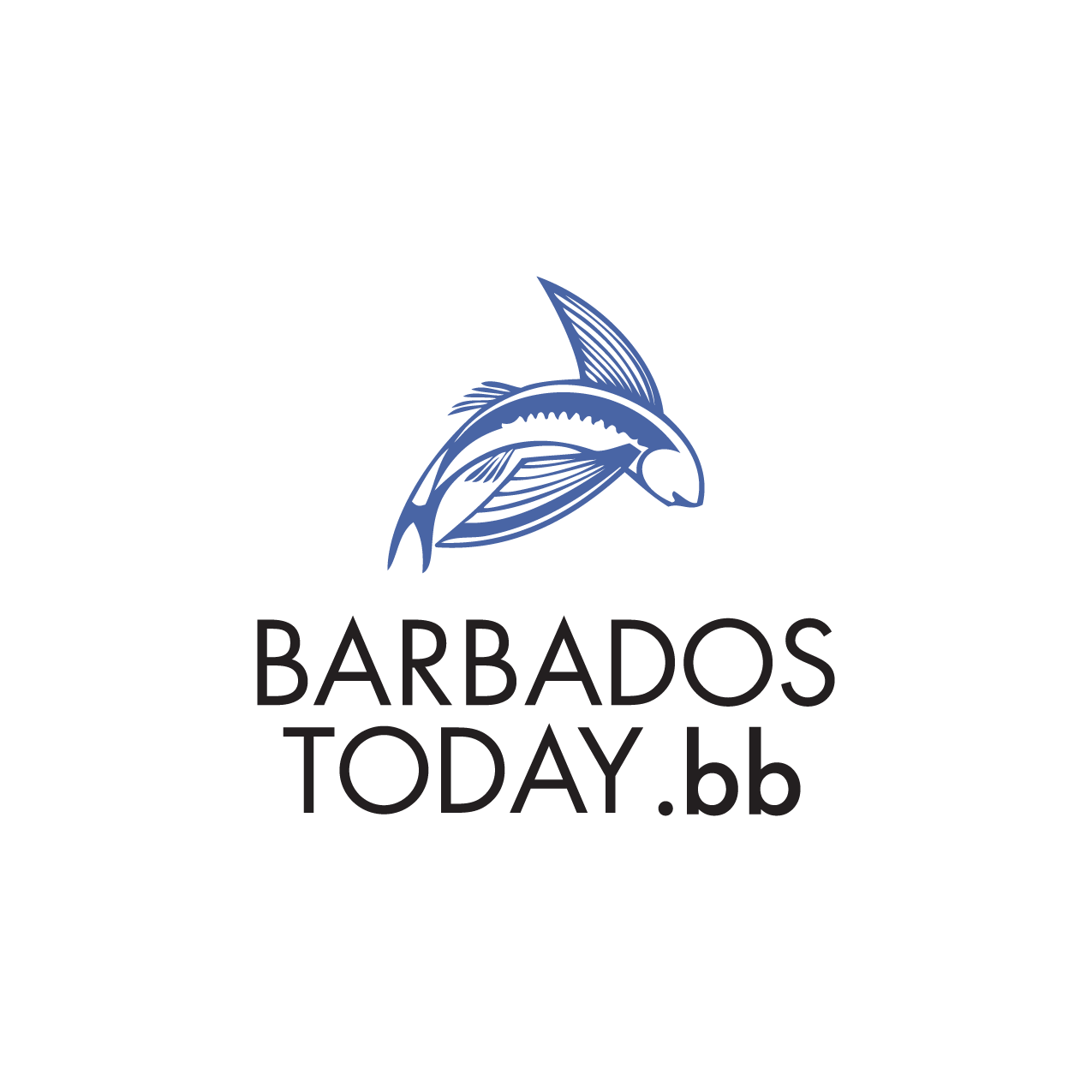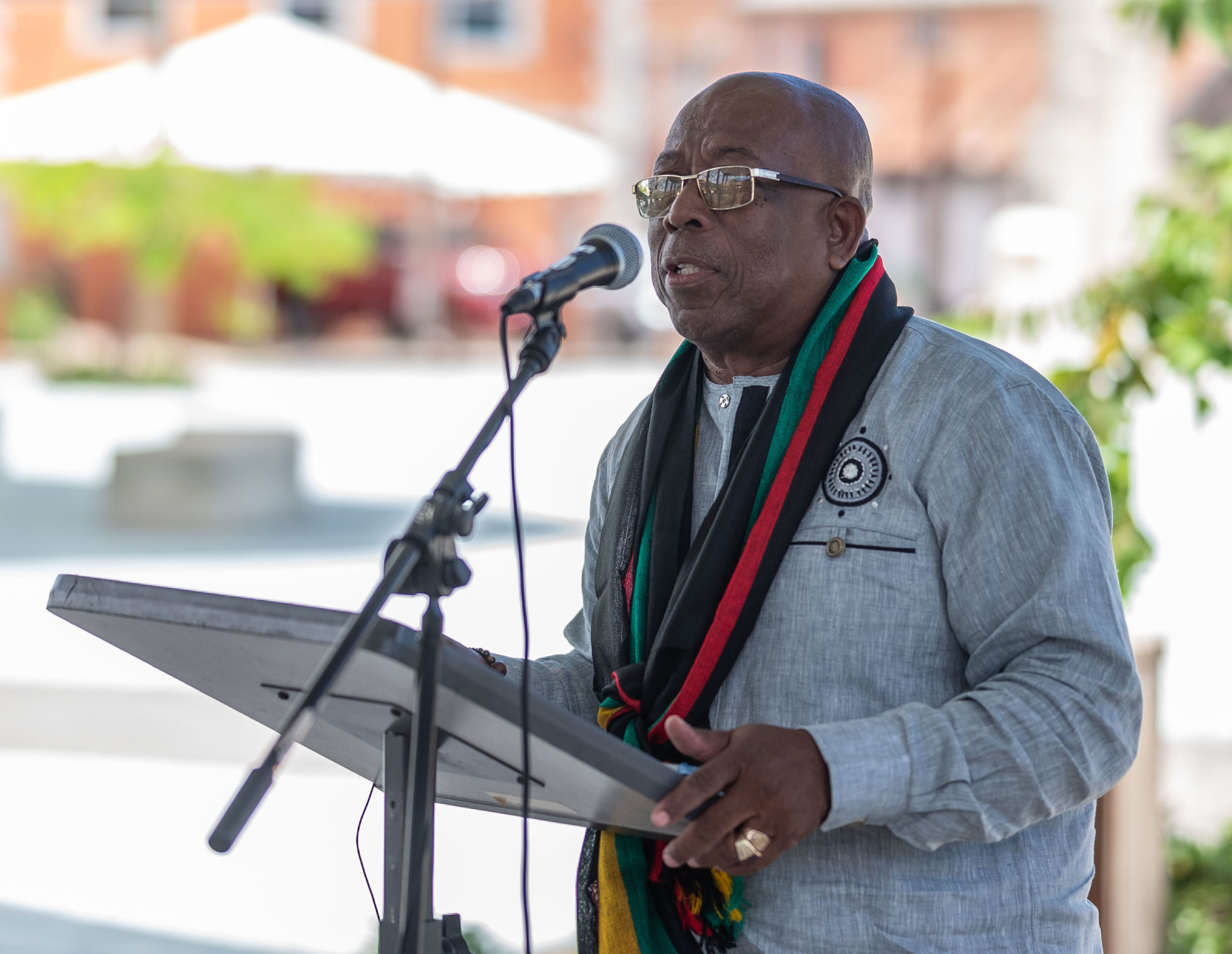by David Hinkson
Based on its location in the heart of Bridgetown, and its significance as the place where National Hero the Right Excellent Clement Payne held his meetings prior to the 1937 labour disturbances, the Golden Square Freedom Park should be seen as “The People’s Open University.”
This is the view of long time Pan Africanist and Special Envoy on Reparations and Economic Enfranchisement in the Prime Minister’s Office, Trevor Prescod.
Speaking at the start of a lecture organised by Write Right PR Services, Prescod said, “I was here on July 26, the anniversary of the riots, and I felt divine influences telling me, ‘This is the University of Golden Square.’ I believe this is a place of wisdom, where ordinary people with a thirst for knowledge, can come, where academia and lay people can exchange ideas.”
He then threw out a challenge to Minister in the Prime Minister’s Office (Culture), Senator Shantal Munro-Knight, who was in attendance.
“Ideally, I would like to see lunchtime public lectures held here on a regular basis, whether once a month or once a week, and I believe that should come under your portfolio. Not just in terms of people coming and talking down to everyday Barbadians, but also a forum where members of the audience can come up and speak as well.”

Terry Morris during his feature address.
Featured speaker, United States-based professor, attorney-at-law and poet, Terry Morris, who spoke on the topic, “Don’t Urinate on Me and Call it Rain: What is Emancipation without Reparations?” discussed previous occasions where reparations were paid, namely after the Haitian Revolution and after Emancipation in the English-speaking Caribbean, but made the point that these did not benefit the former slaves in any way.
Regarding the Haitian Revolution, Morris pointed out that, “In 1825, some years after Haiti became the first slave colony to gain independence, the French blockaded Haiti and forced them to pay 90 million francs, which is worth some 20 billion US dollars today, in reparations. By 1900, 90 percent of Haiti’s national budget was allocated for that purpose, but Haiti really could not afford that, so eventually the French Government gave them a loan, which was paid off in 1947. At that point in time Haiti was essentially alone and could not seek help from the other Caribbean territories since they were still colonies controlled by various European countries.”
In terms of emancipation in the Anglophone Caribbean in 1834, Morris noted that, “Plantation owners got twenty million pounds in reparations, equivalent to 20 billion pounds today, and 40 percent of the UK’s budget was allocated to paying out the slave owners.
However, they were allowed to hold onto their plantations, and the slaves were to continue working for another four years in the case of house slaves, and six years in the case of field slaves, under what they called the apprenticeship system.
However, on August 1, 1838, when the apprenticeship ended for the house slaves, when the field slaves in Trinidad and Tobago found out they had to wait for another two years, they staged a rebellion on August 2nd, following which all the slaves were freed.”
At the end of the lecture, Venezuela’s Ambassador to Barbados, Martha Ortega, spoke of the struggles her countrymen were facing since the major international powers blockaded Venezuela in the wake of Nicolas Maduro’s regime, as well as the 60-year-old United States trade embargo against
Cuba, and she made a case for reparations in those two scenarios.
Morris concluded that, “The fight for reparations is now in the hands of the current generation and those to come. We are a strong people and we will win this fight. We will rise, never to fall again.”
The afternoon’s proceedings also saw performances from vocalist Zoe Sunshine, who sang Bob Marley’s “Redemption Song”, and poet StonedwithCupid who did his piece entitled “Origins”.
Morris also signed copies of his book entitled “Raped and Robbed: Time for 21st Century Reparations.”





